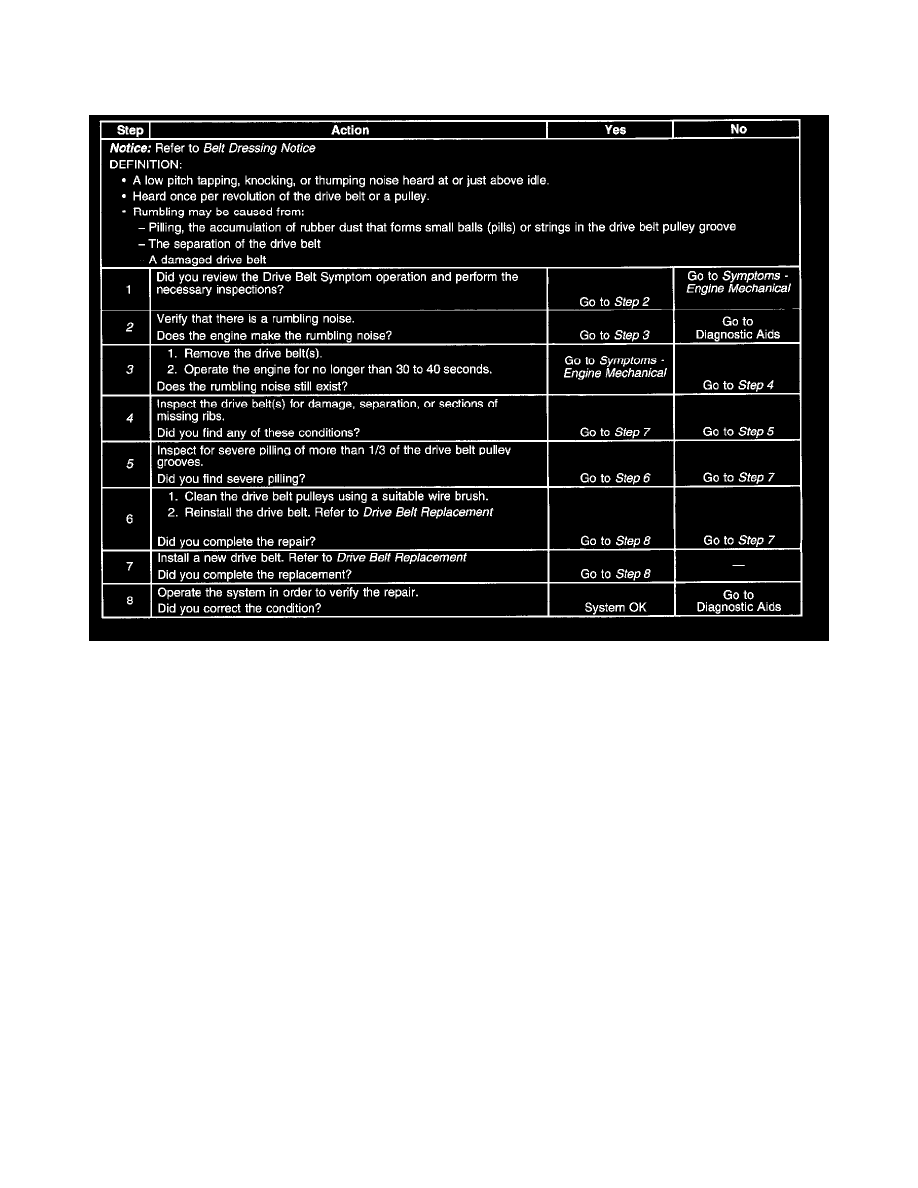Safari Van 2WD V6-4.3L VIN X (2003)

Drive Belt: Testing and Inspection
Drive Belt Rumbling
Drive Belt Rumbling Diagnosis
Steps 1-8
Diagnostic Aids
Vibration from the engine operating may cause a body component or another part of the vehicle to make rumbling noise.
The drive belt(s) may have a condition that can not be seen or felt. Sometimes replacing the drive belt may be the only repair for the symptom.
If replacing the drive belt(s), completing the diagnostic table, and the noise is only heard when the drive belt(s) is installed, there might be an
accessory drive component with a failure. Varying the load on the different accessory drive components may aid in identifying which component is
causing the rumbling noise.
Test Description
The numbers refer to the step numbers on the diagnostic table.
2. This test is to verify that the symptom is present during diagnosing. Other vehicle components may cause a similar symptom.
3. This test is to verify that the drive belt(s) is causing the rumbling noise. Rumbling noise may be confused with an internal engine noise due to the
similarity in the description. Remove only one drive belt at a time if the vehicle has multiple drive belts. When removing the drive belt the water
pump may not be operating and the engine may overheat. Also DTCs may set when the engine is operating with the drive belt removed.
4. Inspecting the drive belt(s) is to ensure that it is not causing a the noise. Small cracks across the ribs of the drive belt will not cause the noise. Belt
separation is identified by the plys of the belt separating and may be seen at the edge of the belt our felt as a lump in the belt.
5. Small amounts of pilling is normal condition and acceptable. When the pilling is severe the drive belt does not have a smooth surface for correct
operation.
